Today it could be argued that human beings daily act against our own self-interest. How? Biologist Paul Ehrlich and fellow scientists tell us we are expanding our population and economy beyond the Earth's carrying capacity– at our peril. Why do we insist on continuing? Humanity in the last few hundred years has become the dominant animal on this planet. We are changing...the atmosphere to the point where we’re threatening our very sustainability, we are now mobilizing most minerals more rapidly…
Rex Weyler has lived the life dreamed of by those who want to make a difference. As a young man he joined early Greenpeace expeditions to document and stop commercial whaling. He went on to co-found Greenpeace International, and as a journalist has covered the subject of ecology extensively. The human machine is just steamrolling…toward disaster.” Weyler has lived a rich life and has a keen understanding of the source of joy, but there is sadness in his voice when…
Lorna Salzman has the chops to be an outspoken critic of many in the modern environmental movement. She played a key role in the early days of Friends of the Earth alongside David Brower (the first executive director of the Sierra Club), beginning a 40-year career as an environmental activist, writer, lecturer and organizer. A contender for the Green Party presidential nomination in 2004, Salzman is an iconoclast in every sense of the word. In this 2010 interview we hear…
The age of growth and the age in which growth is going to be considered a good thing is coming to an end.” The late sociologist William R. Catton was certain of this, but spent a significant portion of his professional life attempting to understand why mainstream society was reluctant to prove his point. Catton authored the landmark book, Overshoot: The Ecological Basis of Revolutionary Change, published in 1980. He brought important sociological perspective to a subject dominated by biologists…
Stephanie Mills made headlines in the Spring of 1969 when she vowed, in her commencement address, to conceive no children. “Our days as a race on this planet are, at this moment, numbered,” she proclaimed, “and the reason for our finite, unrosy future is that we are breeding ourselves out of existence.” This is one of our best episodes from season one. We're sharing these while we take a break between seasons 2 and 3. Help ensure there IS a…
How big is your ecological footprint? Probably bigger than you think. After all, out of sight, out of mind. As an originator of ecological footprint analysis, population ecologist William Rees knows a thing or two about our impact on the planet. In this interview he provides some fascinating, and surprising insights. This is one of our best episodes from season one. We're sharing these while we take a break between seasons 2 and 3. Help ensure there IS a season…
“I don’t think there’s a lot of excuses, frankly, for not doing the right thing.” Anishinaabe orator, author, economist and activist Winona LaDuke doesn’t mince words in her quest to light a path for us to “hang around another thousand years.” Winona observes that we are “doing things only addicts would do,” including sedating ourselves with a lot of information and television. “Your ecosystem seems to be your mall,” LaDuke tell us. Are you enjoying tapping the brightest minds on…
“Gross Domestic Product has now become a fetish,” according to economist Raj Patel. Many undesirable things end up adding to GDP: wars, disease, and environmental destruction, for example. Meanwhile GDP fails to measure many desirable indicators of community health. It has led us to live in an ecologically and socially unsustainable fashion. Are you enjoying tapping the brightest minds on the planet? Want to continue to have this kind of access? Join the community of Conversation Earth fans pitching in…
Our 41st episode is a retrospective of Seasons 1 and 2 of Conversation Earth. In this episode we turn the table, as co-producer Kaitlyn Hickmann interviews host/creator Dave Gardner. The two share highlights from previous episodes and discuss the joys and challenges of producing the series. Please comment below to let us know your favorite moment from the series. Thanks so much for listening, sharing and supporting this series. This episode serves as a great sampler, giving you a taste…
Would you be surprised to learn that human beings today have an impairment that prevents most of us from making the wisest decisions that affect our future? Frustrated at the abysmal rate of adoption when seatbelts were introduced into cars in the 1960s, Jack Alpert quit his job as an automotive engineer to study human decision-making. In this episode he sheds interesting light on how we gather and process information to predict future outcomes and make related decisions. Jack founded…

